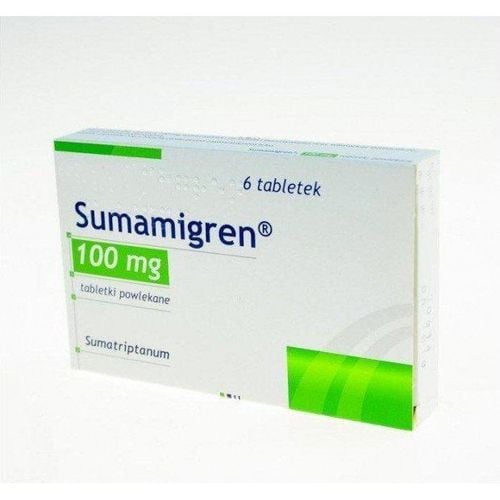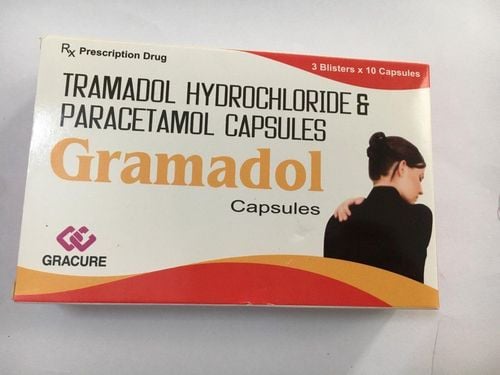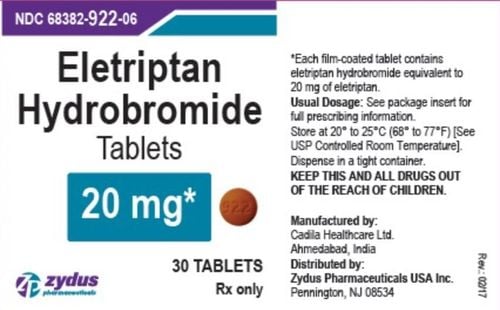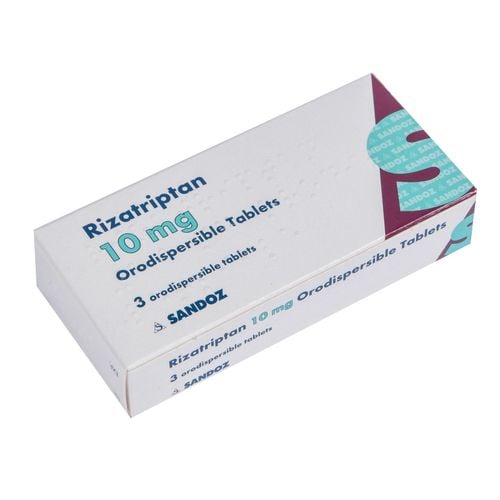This is an automatically translated article.
Many prescription and over-the-counter medications and supplements can cause headaches. Usually, if the medication is stopped or a smaller dose is taken, the headache goes away. However, if you suspect your headache is due to medication, talk to your doctor about this side effect to consider appropriate treatment.
1. What is a medication headache and who can be affected?
Medication headaches are the third most common cause of headaches after migraines and tension headaches. The correct medical term for this condition is 'drug abuse headache' although the person may take the medication only in the recommended dosage.
About 1 out of 50 people have this problem at some point in their life. Medication headaches can occur at any age but are most common in people in their 30s and 40s, and in women more than men.
Drug headaches are mainly caused by taking painkillers or triptans too often to relieve tension headaches or migraine attacks. This condition can still occur when the patient has taken the medicine as directed. This is a common cause of headaches that occur every day or most of the day. Some patients feel that their headache never leaves their body.
The diagnosis of a medication headache is very important because this will be the key to other treatments (such as headache prevention medications) that are unlikely to be effective.
Medication headaches are defined in the following way:
Headaches that occur at least 15 days per month. Headaches that develop or get markedly worse with medication. The headache will clear up on its own or return to normal within two months of stopping the medication. Frequently overused for three months or more one or more medications can be used to treat headaches.

Đau đầu do uống thuốc xảy ra do dùng thuốc giảm đau thường xuyên
2. What drugs cause headaches?
Drugs containing opiates such as codeine are the most frequent headache triggers. Codeine, both on its own and the co-codamol form (in combination with paracetamol ) is probably the most common "culprit".
Triptans used for migraine attacks, such as almotriptan, eletriptan, naratriptan, rizatriptan, sumatriptan, and zolmitriptan. (Strictly speaking, triptans are not classified as pain relievers because they have a different mechanism of action. However, they can still be considered one of the headache medications.)
Nonsteroidal anti-inflammatory drugs (NSAIDs) are less likely to cause overuse headaches, but they can still be experienced. This class of drugs includes ibuprofen, aspirin, naproxen, and diclofenac. Medicines that contain hormones, such as birth control pills and hormone therapy for menopause.
Furthermore, before deciding to take a medication headache, the patient should self-assess other causes of headaches such as daily caffeine dose - from coffee, soft drinks, pain relievers and other products. Contains mild stimulants. At the same time, reading product labels is necessary to ensure that the body does not consume too much caffeine, which can cause headaches. In addition, there are risk factors that can lead to the possibility of a drug-induced headache if a person has:
A history of chronic headaches, especially migraines, puts a person at risk headache caused by taking medicine. Frequent use of headache medicine. The risk is increased if a person uses combination pain relievers, ergotamine or triptans 10 or more days per month, or conventional pain relievers more than 15 days a month. Especially if regular use of these drugs continues for three months or more.

Người có tiền sử đau đầu mãn tính sẽ có nguy cơ bị đau đầu do uống thuốc cao hơn
3. Mechanism of headache after taking the drug?
Patients may experience tension headaches or migraines during periods of stress. They take pain relievers or triptans more often than usual and continue for an extended period of time. As a result, the patient's body gets used to the pain reliever or triptan.
After that, the headache recurs or stops if the patient does not take the pain reliever or triptan within a day or so of the last dose. You think this is just a tension headache or a migraine, so you take an extra dose of pain reliever or triptan. When the effect of each dose of medicine wears off, the patient may experience a headache.
A vicious cycle forms. Over time, a person may experience headaches or migraines most of the day or every day. Therefore, they decide to take a pain reliever or triptan every day or for most of the day. In the end, this only made things worse.
4. How to treat headache caused by taking medicine?
The most important part of treatment is recognizing and understanding the causes of your frequent headaches, pain relievers or triptans. The person can then make a plan to stop taking the pain medication. This is best done with the advice of a doctor. Ideally, the patient should stop taking the drug completely instead of trying to cut it gradually.
Therefore, the patient must completely stop the pain medication or triptan to be able to cure it completely. Do not take alternative pain relievers unless directed by your doctor. Furthermore, patients also need to understand that complete discontinuation of the drug is temporary and is the first step in treatment, not the last. Once a medication headache has stopped, your doctor can begin a preventive treatment plan for a long-term headache.
When a person stops taking painkillers or triptans, headaches or migraines may get worse for a while. After that, the patient's headaches or migraines will gradually return to normal. This process usually takes 7-10 days. However, in some people, it can take a few weeks (sometimes up to 12 weeks) for the symptoms to go away completely and the headaches or migraines to return to normal.

Người bệnh nên trao đổi với bác sĩ để có kế hoạch để ngừng sử dụng thuốc hợp lý
5. How to treat headaches in the future?
The patient can be restarted with the prescribed pain reliever or triptan when the headache or migraine pattern returns.
To prevent the recurrence of medication-induced headaches, the general rule of thumb should be followed:
If the patient has a headache or migraine, two or three doses may be taken in a day or longer. However, people should not take pain relievers or triptans for headaches or migraines for more than two days in any given week. Consider using a preventive, therapeutic approach to prevent headaches or migraines. Codeine and tablets containing codeine, such as co-codamol, are best avoided altogether because they are more likely to cause overuse headaches than other pain relievers. A person may have to decide not to treat some headaches or migraines if they are mild and tolerable. See your doctor if frequent headaches don't go away or if they recur in the future. In summary, headache caused by medication is a common side effect. However, patients should not stop taking their medication until they have talked to their doctor about safety instructions. Furthermore, think about whether over-the-counter medications, alcohol, or caffeine are causing your headaches, and try limiting your use of these before blaming them as headaches.
In case if the headache becomes worse and affects your health and daily life, now you should see a doctor to discuss and get appropriate treatment.
For more peace of mind in examination and treatment, patients can choose Vinmec International General Hospital with top quality medical facilities and a team of highly qualified doctors and medical staff.
In fact, to determine the specific cause of a headache, patients may need intervention from many different specialties. Therefore, with the application of modern equipment and a team of experts, doctors from many large hospitals across the country will help give accurate results from which to have the best treatment direction.
Please dial HOTLINE for more information or register for an appointment HERE. Download MyVinmec app to make appointments faster and to manage your bookings easily.
Reference source: Patient.info - webmd.com












